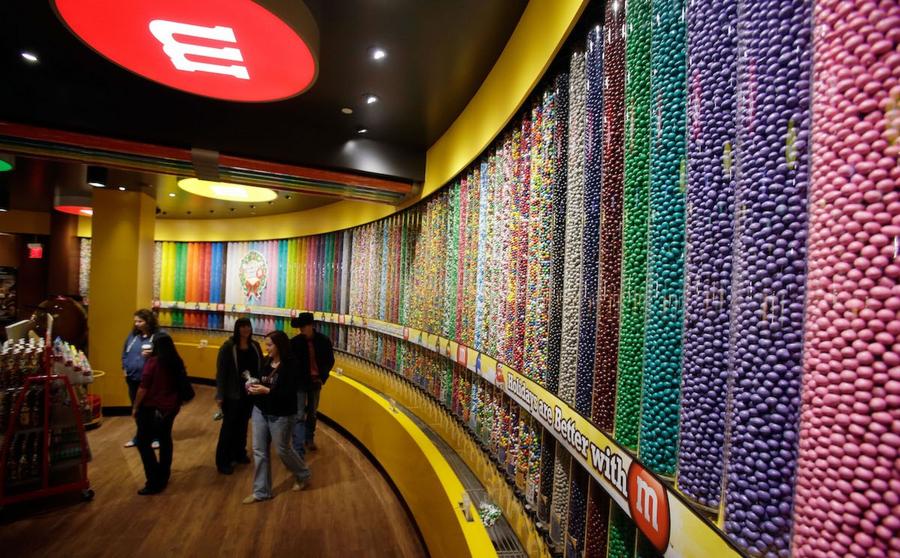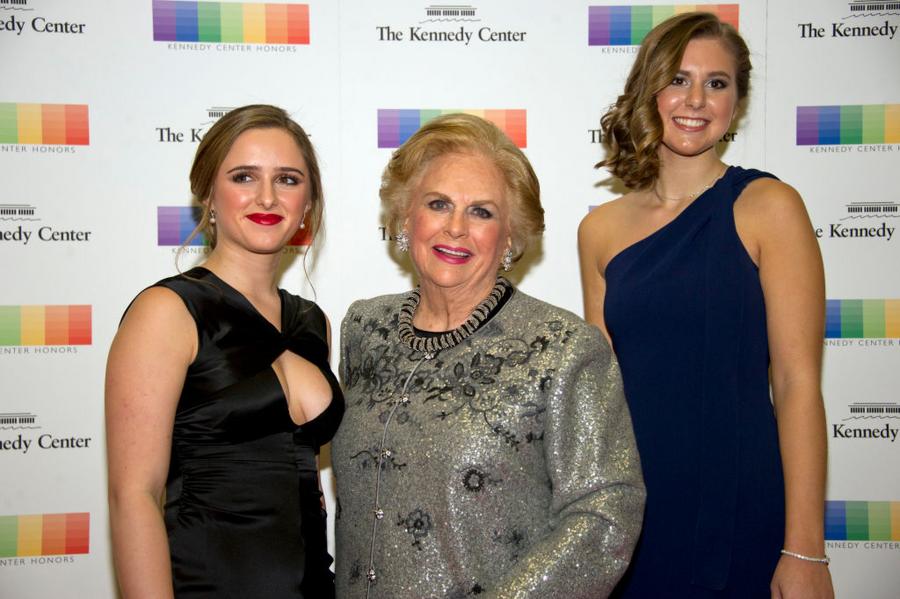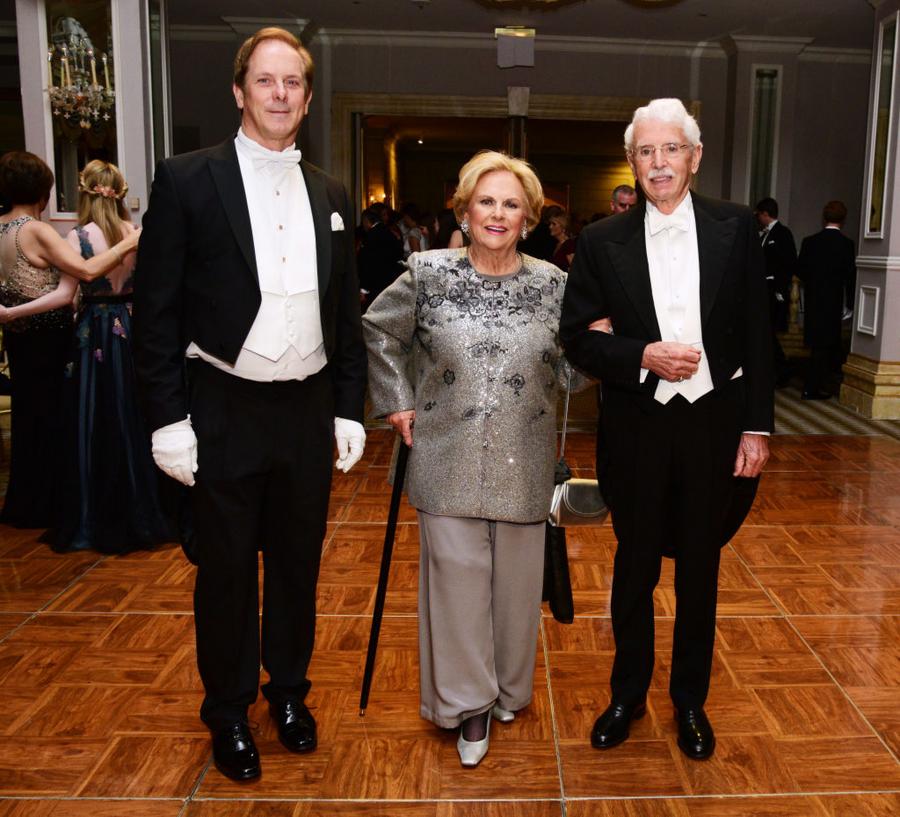The headquarters of Mars, Inc. sits in McLean, Virginia, tucked behind a "Private Property" sign and surrounded by enough security to make it feel more like Langley than Willy Wonka's factory. From the outside, you'd never guess it's the nerve center of one of the world's largest privately held companies, or that it belongs to one of America's richest and most secretive families. While most people know Mars as the maker of M&M's and Snickers, the reality is far more surprising: behind the sugar lies a pet care empire that may be worth even more than its candy.
With an estimated net worth of over $100 billion, the Mars family quietly controls a business that spans chocolate, chewing gum, rice, veterinary hospitals, and premium dog food. And they've done it all while avoiding publicity with almost religious fervor.
From Candy Counter to Empire
The Mars story begins in 1882 with Franklin Clarence Mars, who learned to hand-dip chocolates from his mother in Hancock, Minnesota. By 1910, he was selling candy wholesale in Tacoma. In 1920, he launched the Mar-O-Bar Co. in Minneapolis, which later became Mars, Inc. But the real breakthrough came in 1923, when Franklin's son Forrest Mars Sr. proposed a new candy bar: the Milky Way. It was a smash hit. Seven years later, Snickers followed.
When Franklin died of a heart attack in 1934, the business passed to Forrest Sr.—a man whose ambition was matched only by his intensity. While Franklin enjoyed luxury cars and public success, Forrest Sr. preferred secrecy, frugality, and control. He exiled himself to Europe to build a global arm of the company, feuded with his in-laws over money, and raised his three children—Forrest Jr., John, and Jacqueline—under strict rules that forbade press attention and encouraged distrust of outsiders.

Getty Images
The Cult of Secrecy
Forrest Sr.'s obsession with privacy became the defining trait of the Mars dynasty. After giving a rare interview to the trade magazine Candy Industry in 1966, Forrest felt misquoted and vowed never to speak publicly again. He kept that promise until his death.
His daughter Jacqueline once stormed away from a dinner party upon learning she'd been seated next to Malcolm Forbes, furious that Forbes magazine had dared to rank the family's wealth. The Mars children were taught that fame was toxic and that the best way to preserve wealth was to disappear from public life entirely.
In one legendary moment, John Mars—then 60—reportedly shouted at his father, "How long do I have to work for you, Dad?!" It wasn't a joke. The Mars empire has always been a family affair, and there is no such thing as retirement until the next generation is ready.
Sweet Rivalries and Bitter Mistakes
Mars has long been locked in a chocolate arms race with Hershey. The two companies dominate the American candy landscape, but Mars made a now-famous mistake in 1982: it passed on the opportunity to feature M&M's in E.T. Reese's Pieces, a Hershey product, got the spotlight instead—and sales exploded. Mars never forgot the lesson. In the decades since, it's bought up competitors and pushed global expansion aggressively, now doing over $47 billion in annual revenue.
But even with global reach and iconic products like Twix, Skittles, and Dove bars, candy only tells part of the story.
Most Famous Mars Candy Products
Mars, Inc. owns and produces some of the world's most beloved and best-selling confectionery products:
- M&M's
- Snickers
- Twix
- Milky Way
- 3 Musketeers
- Skittles
- Starburst
- Dove (known as Galaxy in some markets)
- Maltesers
- Mars Bar (more common in the UK/Europe)
- Bounty (popular outside the U.S.)
- Extra gum
- Orbit gum
- Doublemint gum
- Juicy Fruit gum
- Big Red gum
- Life Savers
- Altoids

Jacqueline Mars, center, and her granddaughters, Graysen Airth, left, and Katherine Burgstahler (Ron Sachs-Pool/Getty Images)
The Quiet Pet Takeover
In the early 2000s, Mars began buying up pet food brands—Pedigree, Whiskas, Iams, and Royal Canin. Then came the big pivot: veterinary services.
In 2007, Mars acquired Banfield Pet Hospital. A decade later, it shelled out $9.1 billion to buy VCA Animal Hospitals, adding more than 1,000 locations to its portfolio. Today, the company also owns BluePearl and AniCura, making it one of the largest veterinary service providers in the world.
This move wasn't about diversifying. It was about betting on the future. Americans now spend more on their pets than ever before—an estimated $140 billion annually—and Mars positioned itself to dominate everything from kibble to kidney surgery. Industry analysts believe the company's pet care division may eventually surpass its confectionery revenues.
Mars Petcare Assets
Mars is one of the largest pet care companies in the world, with a portfolio spanning food, veterinary services, diagnostics, and technology:
Pet Food Brands
- Pedigree
- Whiskas
- Iams
- Eukanuba
- Royal Canin
- Sheba
- Cesar
- Nutro
- Temptations (cat treats)
- Greenies (dental treats)
- Dreamies (known as Temptations in some regions)
Veterinary Services
- Mars owns and operates thousands of vet clinics and hospitals globally:
- Banfield Pet Hospital (over 1,000 locations in the U.S.)
- VCA Animal Hospitals (acquired for $9.1 billion in 2017)
- BluePearl (specialty and emergency vet care)
- AniCura (European veterinary clinics)
- Linnaeus (UK-based vet group)
- Vet Partners (Australia and New Zealand)
- Pet Diagnostics & Tech
Antech Diagnostics
- OptiGen (genetic testing)
- Whistle (GPS and health-tracking devices for pets)
- Companion Fund (venture arm investing in pet care startups)

(Photo by Aurora Rose/Patrick McMullan via Getty Images)
Billionaires in the Shadows
The Mars family fortune is now in its fourth and fifth generations. Forrest Jr. died in 2016, leaving behind a fortune of $25 billion. John and Jacqueline Mars, both in their 80s, are still listed among the richest people in America. They are BOTH worth around $45 billion.
Victoria Mars, daughter of Forrest Jr., took over as chairman in 2014. A Yale graduate with an MBA from Wharton, Victoria has spent her entire life inside the company. Like her father and grandfather before her, she avoids interviews, shuns the spotlight, and maintains the family code of discretion.
Despite their massive fortune, you won't see the Mars family on magazine covers or speaking at Davos. Most Americans wouldn't recognize them walking down the street. That's exactly the point.
A Future of Privacy
Mars, Inc. remains 100% family owned—an increasingly rare feat for a business this size. The family's distaste for public disclosure is so extreme that going public is unthinkable. If the younger generation ever decides they don't want to run the business, Mars will likely sell to a larger private conglomerate before it ever files for an IPO.
Perhaps Nestlé would take the reins. Or maybe Berkshire Hathaway. But one thing is certain: the Mars family would rather burn the factory down than let Hershey get their hands on it.
/2014/04/jacqueline-mars.jpg)
/2020/12/GettyImages-884611364.jpg)
/2018/09/GettyImages-884611364-2.jpg)
/2010/09/GettyImages-884611364.jpg)
/2023/09/john-mars.png)
/2009/09/Jennifer-Aniston.jpg)
/2019/10/denzel-washington-1.jpg)
/2009/09/Brad-Pitt.jpg)
:strip_exif()/2009/09/P-Diddy.jpg)
/2018/03/GettyImages-821622848.jpg)
/2020/06/taylor.png)
/2020/01/lopez3.jpg)
/2009/11/George-Clooney.jpg)
/2020/04/Megan-Fox.jpg)
/2009/09/Cristiano-Ronaldo.jpg)
/2020/02/Angelina-Jolie.png)
/2019/11/GettyImages-1094653148.jpg)
:strip_exif()/2015/09/GettyImages-476575299.jpg)
/2019/04/rr.jpg)
/2017/02/GettyImages-528215436.jpg)